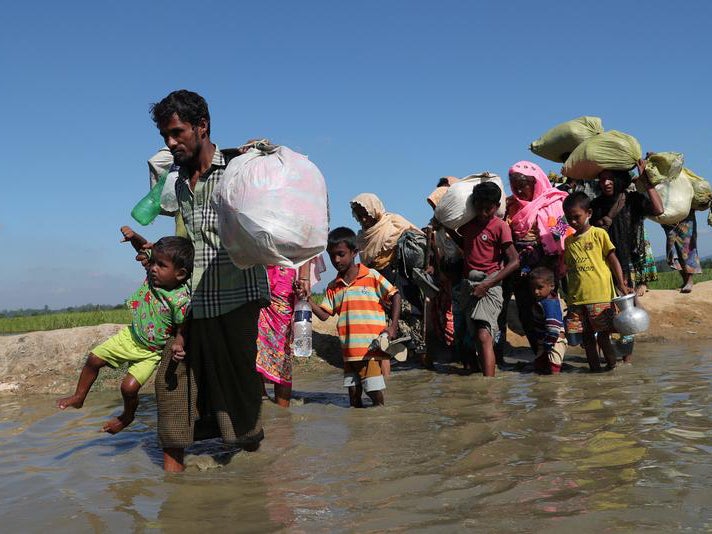Burma-Bangladesh deal on Rohingya Muslims lambasted as 'dangerous' and 'premature' by Amnesty International
Returning minority to 'conditions amounting to concentration camps' is 'unthinkable', say activists

A deal struck between Bangladesh and Burma to repatriate Rohingya refugees who fled a campaign of violence has been condemned as “dangerous” and “premature” by activists.
Amnesty International said returning the Rohingya to Burma was “unthinkable” while a system of “apartheid” remains in place there.
Many of the ethnic minority Muslims who still reside in the country “are held there in conditions that amount to concentration camps”, the rights organisation warned.
At least 620,000 Rohingya from Burma’s Rakhine State have fled to neighbouring Bangladesh, seeking refuge from what Burma’s military has called “clearance operations”.
The crisis started in August, when Rohingya insurgents attacked Burmese security forces, triggering a brutal crackdown in which soldiers and Buddhist vigilante groups killed men, raped women and girls and burned homes to force the Rohingya to leave.
The Burma-Bangladesh agreement comes after the US on Wednesday described the ongoing violence against the Muslim minority as “ethnic cleansing” and threatened penalties for military officials.
Kate Allen, director of Amnesty International UK, told The Independent: “Returning the Rohingya to Burma while a system of apartheid exists is not only dangerous, but extremely premature.
“Hundreds of thousands of people have fled for their lives amid a brutal crackdown by the Myanmar military, and in many cases have no homes to return to as whole villages have been burned to the ground.”
Not one Rohingya refugee should return to the country before the military ends its “campaign of ethnic cleansing”, she said.
“If any progress is to be made, the Rohingya must be guaranteed citizenship, have their land returned and be given the right not to live in fear of persecution,” she added.
Rohingya Muslims have faced state-sponsored discrimination in the Buddhist country for decades. Despite members of the ethnic minority arriving in the country generations ago, the Rohingya were stripped of their citizenship in 1982, denying them almost all rights and rendering them stateless. They cannot travel freely, practice their religion, or become professionals. They also have little access to medical care, food or education.
The Burmese government does not recognise the minority and a statement issued on Thursday by Aung San Suu Kyi’s office did not use the term “Rohingya“.
“There can be no safe or dignified returns of Rohingya to Myanmar while a system of apartheid remains in the country, and thousands are held there in conditions that amount to concentration camps. Returns in the current climate are simply unthinkable,” Amnesty International’s director for refugee and migrant rights, Charmain Mohamed said.
Mr Mohamed pointed to Burma and Bangladesh’s obligations under international law, saying it would be illegal to return the refugees to a situation where their human rights are at risk.
He added: “The fact the United Nations and the international community have been completely sidelined from this process does not bode well for ensuring a robust voluntary repatriation agreement that meets international standards.
“At a minimum, Rohingya should be able to continue to seek asylum in Bangladesh, while those who do not want to go home must not be forced to.”
Join our commenting forum
Join thought-provoking conversations, follow other Independent readers and see their replies
Comments
Bookmark popover
Removed from bookmarks